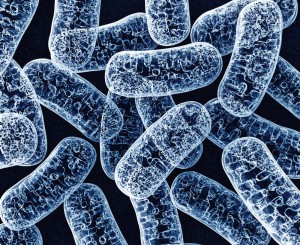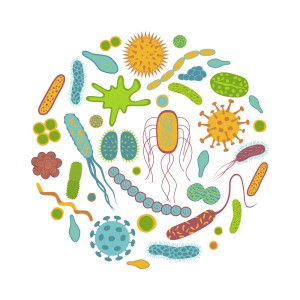Improving Metabolism by Understanding Metabolism
 Understanding the True Impact of Metabolism on Health
Understanding the True Impact of Metabolism on Health
Have you heard people asking what is slower metabolism or is faster metabolism good? Do you understand what that means or….…I felt that way until I started to learn what it all means.
We define the terms so you can understand this health issue.
What is Metabolism?
You’ve probably heard a lot about metabolism, but do you have an understanding of what it means? Or why improving your metabolism is so important?
What is every chemical reaction in your body called? – your metabolism. And what runs your metabolism – the tiny engines or “batteries” called the mitochondria.
Metabolism is a term that is used to describe all chemical reactions involved in maintaining the living state of the cells and the organism
We define the terms so you can understand this health issue.
Metabolism definition – Metabolism is a generic word for EVERY chemical process in your body from energy production to cellular reproduction and fighting off disease. Metabolism is the process of cells creating energy from food, from nutrition. Well-functioning cells create a healthy body.
Metabolic health refers to how well your body converts food and stored energy into cellular fuel.
Thus, improving metabolism is a health goal. How do you improve metabolism?
What are the mitochondria?
 Mitochondria (singular: mitochondrion) are organelles (tiny organs) inside the cell that produce the energy used by the cell. For this reason, the mitochondrion is sometimes referred to as “the powerhouse of the cell”. They are the batteries of the cells.
Mitochondria (singular: mitochondrion) are organelles (tiny organs) inside the cell that produce the energy used by the cell. For this reason, the mitochondrion is sometimes referred to as “the powerhouse of the cell”. They are the batteries of the cells.
Cells that need to perform high amounts of work, such as muscle cells in the heart and legs, fat cells and liver cells. Mitochondria are organelles which contain their own DNA. Animal cells generally have approximately 1,000 to 2,000 mitochondria
Mitochondrial Dysfunction means the body has fewer mitochondria, and the ones it does have are smaller and inefficient. This leads to metabolic dysfunction as mitochondrial damage which disrupts normal metabolism. Damage to the mitochondria causes cells to die because they can no longer produce enough energy.
See more about Mitochondria
And…
Metabolic Dysfunction When metabolism goes awry there are abnormal chemical reactions that disrupt the body’s metabolism so less cellular energy is produced and organ dysfunction can result. Impaired metabolism can result in nutrient deficiencies and toxic overload.
If you have high blood pressure, high blood glucose, insulin resistance, high cholesterol, and excess weight around the waist you have a metabolic disorder – an imbalance or deficiency – that negatively affects the way your body functions.
This also means you have an increased risk of a serious health condition if you have 3 or more factors. This is commonly referred to as Metabolic Syndrome. If you have these factors, you are not alone. It is important that it be addressed.
The Metabolic Syndrome is metabolic dysfunction, and it starts with mitochondria dysfunction. What can your body do without the energy that it needs to run all its different processes?
Understanding the Related Words surrounding Metabolism
What is the gut?
The human gut, also known as intestines, is a muscular tube that extends from the stomach to the anus.
 What is the microbiome?
What is the microbiome?
Microbiome comes from Ancient Greek mikrós ‘small’ and bíos ‘life’.
The microbiome is the community of microorganisms that can usually be found living together in any given habitat. The microbes include bacteria, fungi, and viruses. These communities live on the skin, the mouth, and especially the gut.
The human ‘gut microbiome’ is made up of the trillions of microorganisms that live in the intestinal tract and play a key role in digesting food and helping to absorb and synthesize nutrients.
What Happens When Your Gut is “Out of Balance”?
Most microbes in the body are useful, but they may become harmful when out of balance. There can be a predominance of harmful bacteria rather than beneficial bacteria. Some bacteria need to be in a correct ratio one to another for a healthy gut, and when the ratio is not correct, gut issues occur.
These days, many people suffer with a gut that is “out of balance” due to a diet of too many highly processed foods and not enough whole foods, not enough sleep, too much stress, food intolerances, and insufficient prebiotics and probiotics.
Disruption of the gut microbiome can cause numerous issues such as digestion issues, low energy and fatigue, insulin resistance and can even lead to metabolic disorders, such as hypertension, visceral obesity, high blood sugar and Type 2 Diabetes.
What is the microbiota?
The human gut microbiota refers to the trillions of microbes, such as bacteria, that live in the human gut. They live in the microbiome. Most microbes in the body are useful, but they may become harmful when out of balance.
What does improving your metabolism mean?
Support for a healthy gut microbiome, digestion and normal bowel movements as well as the mitochondria that powers these functions.
It improves immune health. It will improve the natural immune defenses in the nose, throat, and upper respiratory tract in healthy adults especially during cold and flu season.
It supports the body’s natural antioxidant defenses.
It has been shown to support healthy cognition and memory in animals and humans.
Stress and Inflammation support: It has been shown to decrease cortisol levels and to reduce inflammatory substances which are secreted by certain cells of the immune system and have an effect on other cells) in stressed adults.
Do you want a Healthier Metabolism?
I’ll bet you are using a probiotic if you are interested in your metabolism and your gut. Yes, that is the right thing to do. But there might be something more that is stopping your metabolic health or something more you can do to improve metabolic health. It needs more than a probiotic.
You can fix your metabolism, turn your health around and feel better.
Symptoms of a dysfunctional metabolism is called Metabolic Syndrome. One or more symptoms are present.
These symptoms are Obesity, Cholesterol, Pre-diabetes & Insulin Resistance, Hypertension, Autoimmune problems, Inflammaation. To understand more about the Metabolic Syndrome.
If you need a good probiotic, here is our choice MicroBalance Unique Probiotic Formula)
Our Recommendation for Improving Metabolism, your Gut and Your Mitochondria is PureLife Care+
The basic of what will increase metabolism is Camel Milk.
Read about this at PureLife Care+
But there might be something else that is stopping your metabolic health. Read on.
BUT don’t worry you would use the same recommendation PureLife Care+
Should you be Worried about a Fatty Liver?
The liver is the major organ for detoxification. It detoxifies, by metabolizing and/or secreting the toxins out of the body.
Alcohol abuse will damage and eventually destroy the liver. This is what most people think of when they hear of liver damage, they think of alcoholic liver damage.
But there is a liver condition that is affecting an ever-increasing number of Americans. and it has nothing to do with alcohol. It’s non-alcoholic fatty liver disease.
The liver can be damaged over the years in many ways – by smoking, sugar-laden sodas, fried foods, processed foods, drugs, alcohol, and environmental toxins. These all tax the liver, but sugary, fried, and processed foods give the body a real problem. The excess sugar and fat cannot be utilized by the body and so is stored as fat in the body, and particularly in the liver.
The result is a compromised liver, and the toxins that are normally filtered out can re-circulate through the body re-exposing it to harmful compounds and can trigger a toxic overload.
This liver condition may have significant implications for health. It is estimated that 25% to 30% of adults in the United States have a fatty liver. Even more worrying is the fact that the National Institutes of Health (NIH) states that non-alcoholic fatty liver disease is now the most common liver disease in children today with an estimated prevalence of 7 million affected children in the US.
Non-alcoholic fatty liver disease (NAFLD) is now referred to as metabolic-dysfunction associated fatty liver disease (MAFLD) – a more accurate description.
Understanding Metabolic-Dysfunction Associated Fatty Liver Disease (MAFLD)
This is a chronic liver disease and is the most common liver disorder, often associated with conditions such as obesity and Type 2 diabetes. It occurs because of metabolic dysfunction – basically the metabolism is not functioning as it should – and the result is a buildup of harmful fat in the liver.
It is even often associated with Post Pandemic Long-Haul Symptoms
Read: Should you be worried about a Fatty Liver?
HOW TO BUILD HEALTH – Getting educated in nutrition and how the body works will take you on the road to good health. We found a great science-based program to learn the basics so you know what you should be eating and what you shouldn’t be eating and WHY.
We now have the link for Eat Well Nutritional Education Course – Learn to Understand Nutrition
STILL HAVE QUESTIONS? EMAIL AND GET YOUR QUESTIONS ANSWERED.
MCVitamins will work with you on an individual-by-individual basis to help you get the results you seek. And don’t be surprised if we contact you so we can check up on how you’re doing and to see if we can help you to get things moving faster!
* This statement has not been evaluated by the Food and Drug Administration. This product is not intended to diagnose, treat, cure or prevent any disease.
Sign up to receive the MCVitamins Newsletter!
Up-to-date info on the latest health-related news happening in the world
(available in English only)

